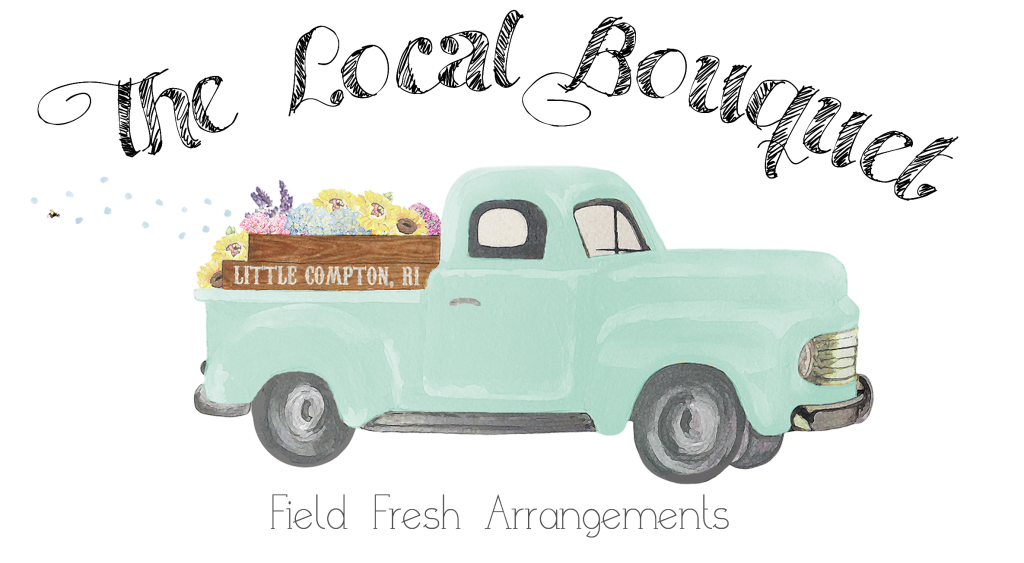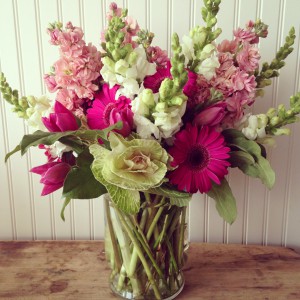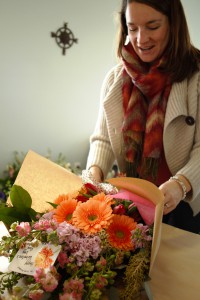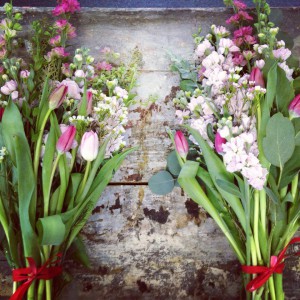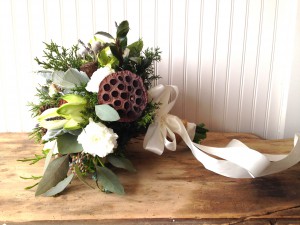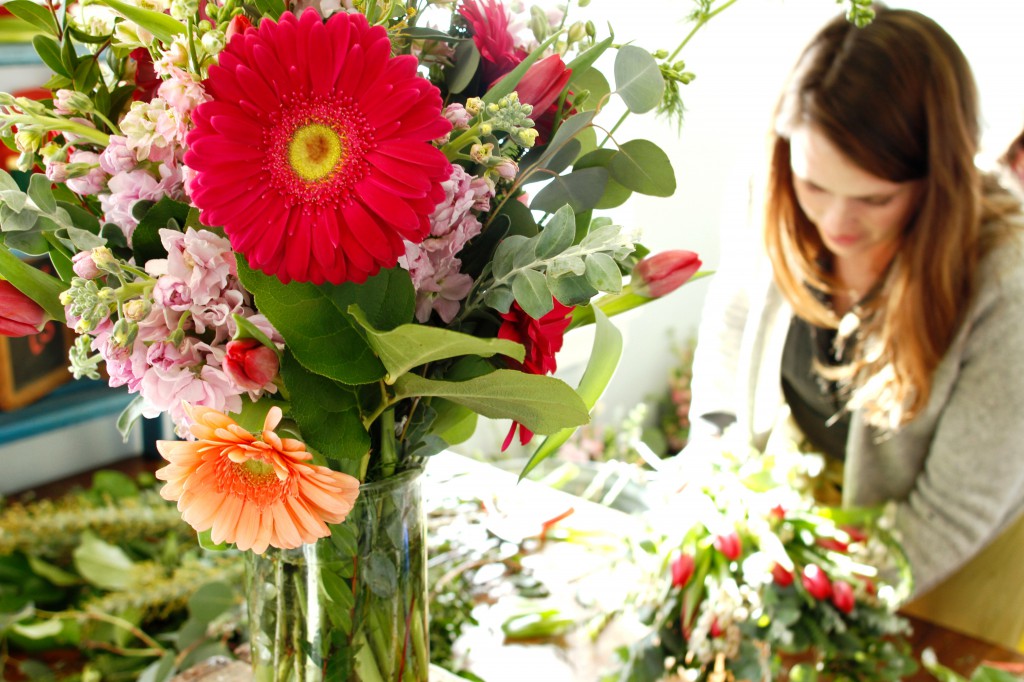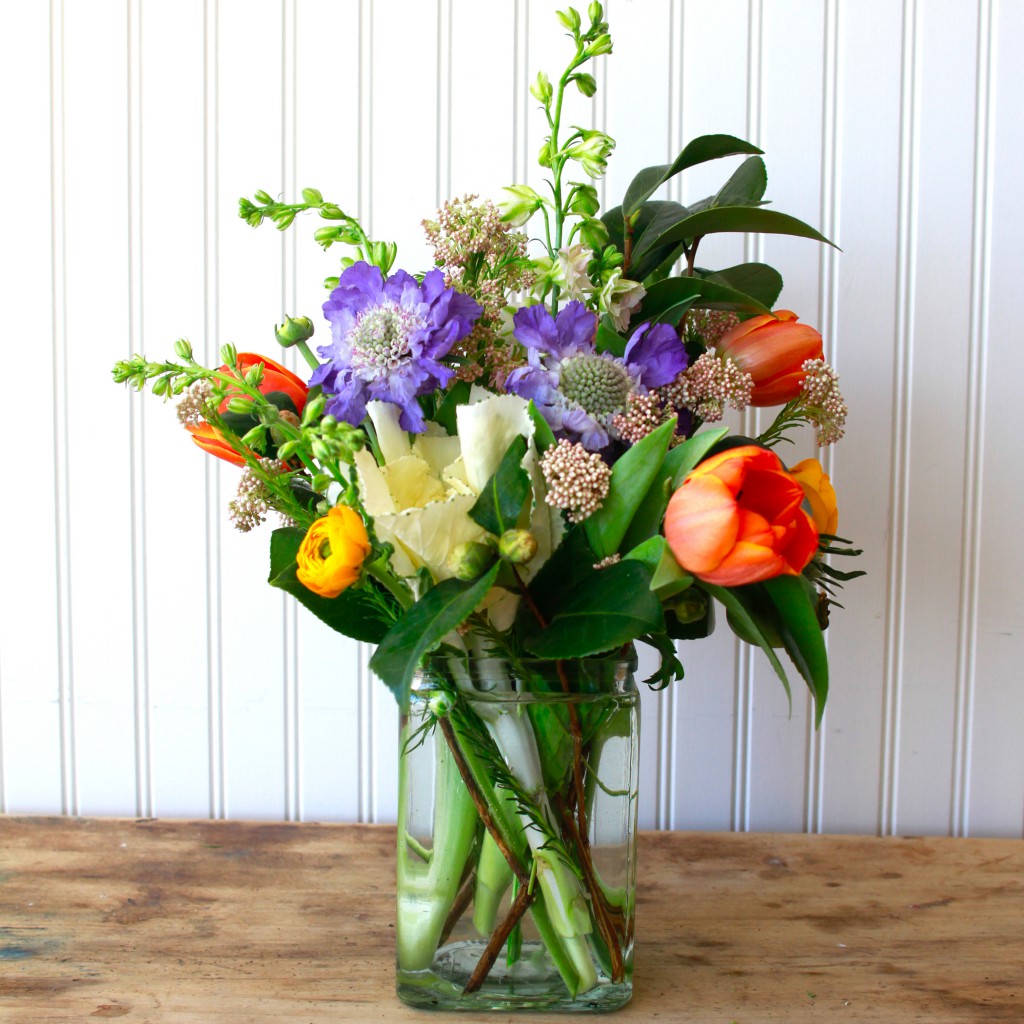Podcast: Play in new window | Download
Subscribe: Apple Podcasts | Podcast Index | RSS | More
Today’s interview was inspired by an email I recently received from Mary Kate Kinnane and Maureen Azize, partners in The Local Bouquet, based in Little Compton, Rhode Island. Their full-service floral design studio uses locally and domestically grown blooms for every occasion – and it’s their dedication to this philosophy that prompted them to reach out to me.
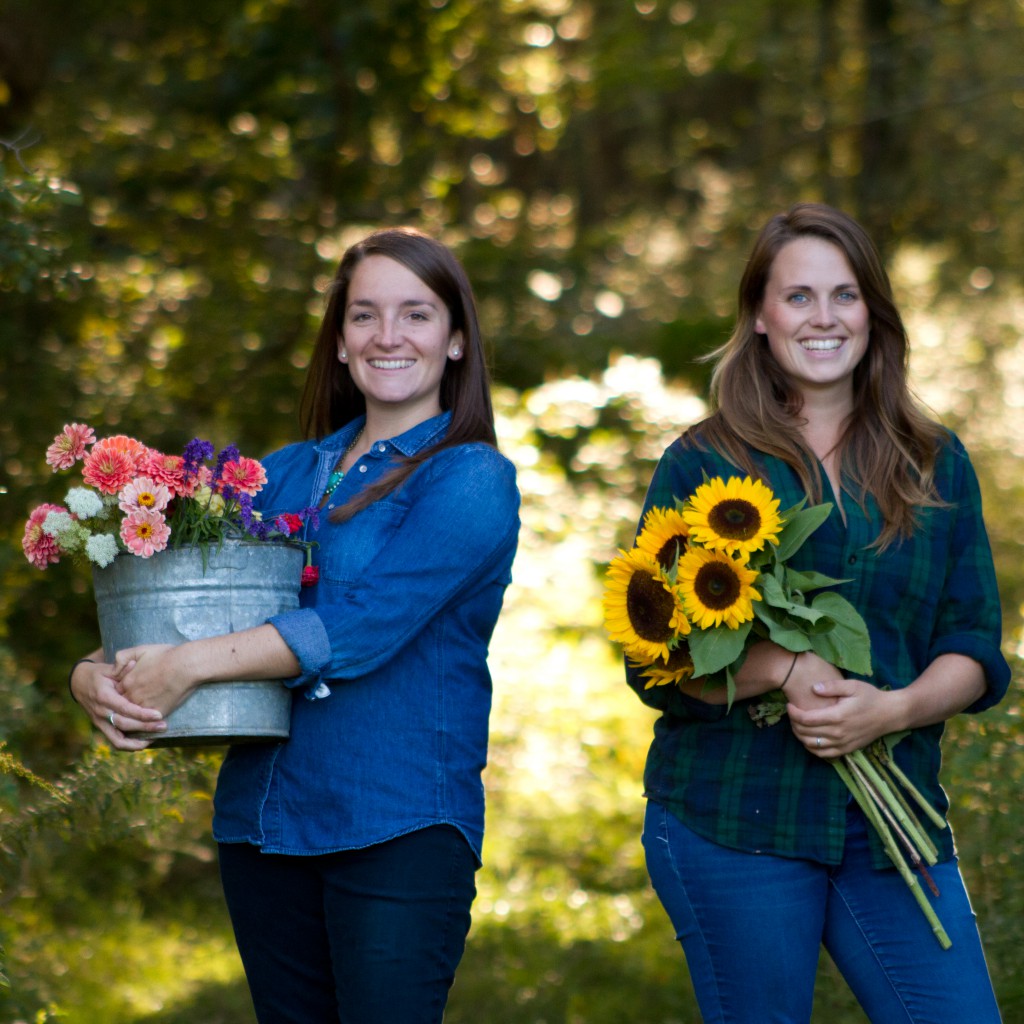
Mary Kate (left) is the studio’s wedding and event coordinator; Maureen (right) is the field coordinator and director of cut flowers.
Their letter was just one of several similar “cries for help” from Slow Flowers believers around the country, including Justine Lacy and Jessica Stewart of Foxglove Brooklyn Floral Design Studio, who were my podcast guests two weeks ago.
The essential question is this: HOW CAN SMALL FLORAL BUSINESSES MOTIVATE THEIR WHOLESALE SUPPLIERS TO OFFER AMERICAN GROWN FLOWERS FROM LOCAL FARMERS AND OTHER DOMESTIC SOURCES?
Here’s the note that Mary Kate and Maureen sent:
Let me start by introducing myself. My name is Mary Kate and I am co-owner and co-operator of The Local Bouquet, a full service floral design studio in a small town in Rhode Island. My business partner Maureen and I are both 26 years old, newly married and new mothers too.
We really have learned a lot in the past year from you and all of the educational media you are sharing, so I want to thank you for that. We need your help and expertise though! We realized when we started our business with this unique mission that it would be a challenge to get our hands on local and domestically grown blooms throughout the year, especially in our area of the country. We never imagined just how big that challenge would be though.
We have reached out to farmers not just in the New England area but also on the eastern seaboard and the West Coast. We have had disappointingly little luck. All of the farmers outside of our state are not interested in selling to small businesses like ours. They all give us the same speech about how we need to guarantee them big numbers on a weekly basis for them to want to ship all the way to R.I.
This is where we need your help. How do we get our hands on more blooms from the U.S.? How do we convince these farmers that even though we are small and just starting out, it is an investment to work with us and one that will grow the “American Flower Farmer” movement. Do you know of any farms that would be willing to sell/ship to us? Do you have any recommendations for us as florists who are trying to support the local and domestic farmers? Any help you could give us would be greatly appreciated!
Because of the support from you and others, listeners have downloaded episodes of the Slow Flowers Podcast more than 10,000 times! I thank you for taking the time to join to my conversations with flower farmers, florists and other notable floral experts.
If you like what you hear, please consider logging onto Itunes and posting a listener review.
Until next week please join me in putting more American grown flowers on the table, one vase at a time.
The Slow Flowers Podcast is engineered and edited by Hannah Holtgeerts. Learn more about her work at hhcreates.net.









